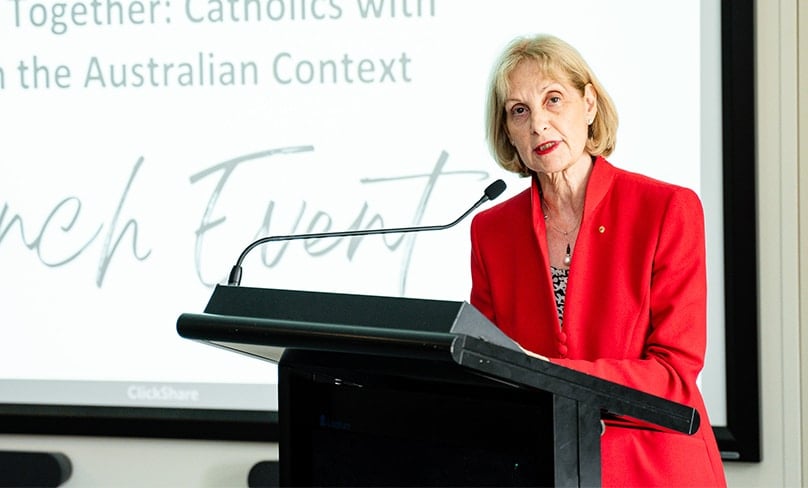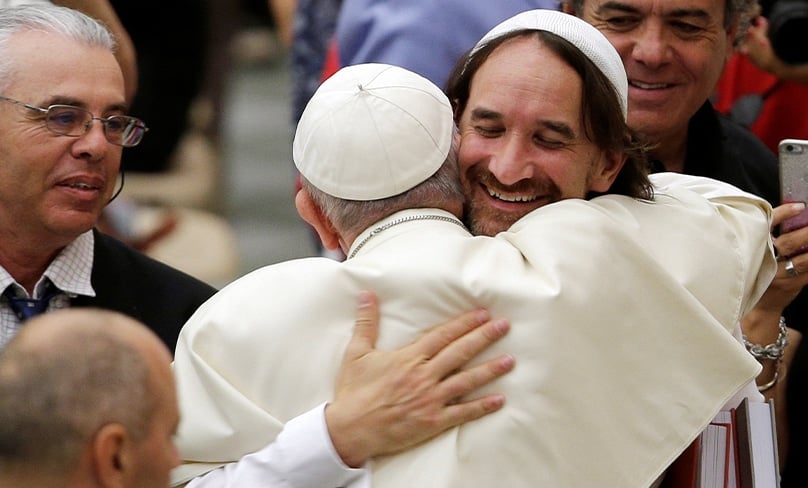
By Peter Wertheim and Teresa Pirola
In two CW articles (5,12/3/23), Fr John Flader writes about the conversion of Jews to Christianity in such a way as to give the impression that the Catholic Church advocates missionary activity towards Jews, and that Jews need to embrace Jesus to be saved. This impression is wrong on both counts.
The Catholic Church today recognises that the Jewish people are already in a saving relationship with G-d, which is the principal theological reason it refrains from missionary work directed towards Jews.
In 2013, Pope Francis taught:
“We hold the Jewish people in special regard because their covenant with God has never been revoked … As Christians, we cannot consider Judaism as a foreign religion; nor do we include the Jews among those called to turn from idols and to serve the true God…” (EG, 247).
Francis was reinforcing the teaching of Vatican II, anchored in a Pauline text, that G-d’s promises to Israel cannot be negated, “for the gifts and the calling of God are irrevocable” (Rom 11:29; see NA,4; LG,16).
Pope John Paul II made explicit this conciliar teaching in the remarkable theological formula: G-d’s covenant with Israel is “never revoked”. (Addresses at Mainz, 1980; Mt Sinai, 2000; Sydney, 1986; cf. Catechism, #121).
The significance of this teaching is immense. Even as the Church proclaims Jesus to be the Messiah and Son of God, Catholics recognise that G-d’s covenant with the Jewish people remains in force; indeed, is eternal.
G-d, who is steadfastly faithful, has not “downgraded” Jewish covenantal life following Christianity’s emergence; G-d’s loving fidelity to the Jewish people endures as powerfully as ever.
These are complex and nuanced matters for Catholic theology that continue to be studied and to which this short piece cannot do justice. Part of the complexity relates to what we mean by terms such as “mission”, “evangelisation”, “witness” and “fulfilment”. The following quotes provide an entry point for those who wish to learn more.

Photo: CNS/Max Rossi, Reuters
In 2015, the Holy See’s Commission for Religious Relations with the Jews stated: “The Church is … obliged to view evangelisation to Jews, who believe in the one God, in a different manner from that to people of other religions and world views. In concrete terms this means that the Catholic Church neither conducts nor supports any specific institutional mission work directed towards Jews.” (“Gifts & Calling”, 40)
In 2023, the Australian Catholic Bishops, in their statement on Catholic-Jewish relations, note: “Catholics avoid any approach towards Jews that suggest they are bereft of a saving relationship with God.” (Walking Together, p.3)
The mainstream Jewish community sees the active targeting of Jews for conversion to Christianity as not only theologically, but also morally, abhorrent.
Deep within the collective memory of the Jewish people is the long history of persecution and violence that attended the Church’s attempts to impose Christianity on small and vulnerable Jewish communities who were at their mercy: the ritual humiliations, the staged theological “disputations,” the threats of expulsion, the tortures, the autos da fé, mass executions and other abominations that found their nadir in the terrors of the Inquisition.
Centuries of Christian persecution of Jews who refused to convert, or feigned conversion, did not cause the Nazi genocide in the 20th century.
It did, however, entrench in western civilisation a way of conceptualising Jews that dehumanised them, reducing them to an impersonal, collective “other” instead of seeing Jews as flesh-and-blood fellow human beings in all their unique individuality.
This conceptualisation, repugnant to the Judeo-Christian principle of the sanctity of human life and dignity, was an essential precondition for the Holocaust. This is the sobering background of which Christians must be cognisant when discussing issues of conversion and mission.
The conversion of Rabbi Israel Zolli, Chief Rabbi of Rome, in 1944, occurred in the shadow of the chimneys at Auschwitz belching flames and human ash high into the sky, day after day.
His decision to go into hiding, followed by his baptism nine months later, left his desperate community bereft and leaderless in its darkest hour.
We make no judgement about Zolli’s emotions, thoughts and choices for himself, his family and community under those extreme circumstances. Nor can his conversion genuinely be celebrated as a triumph for Christianity.
Peter Wertheim AM is Co-CEO of the Executive Council of Australian Jewry. Dr Teresa Pirola is a Catholic educator and author.
